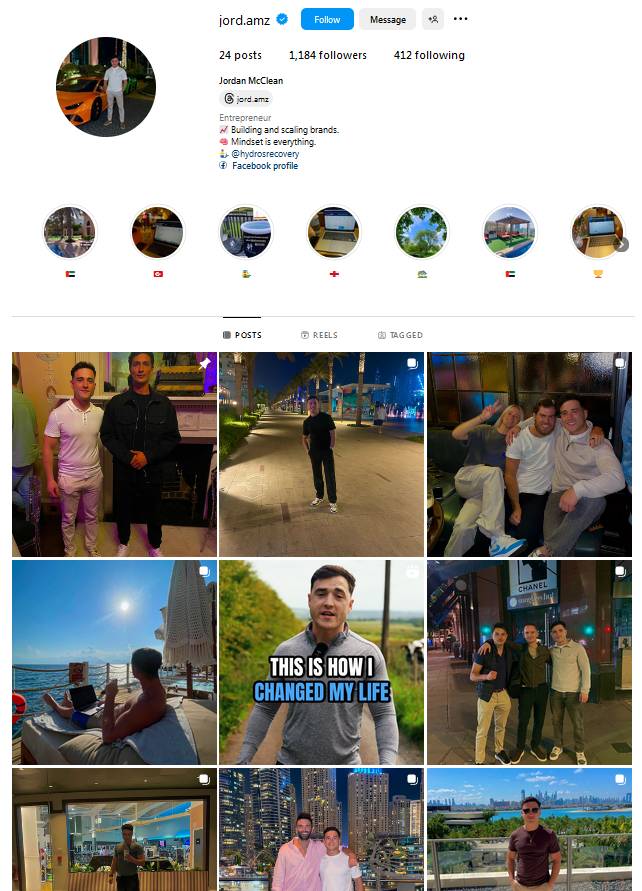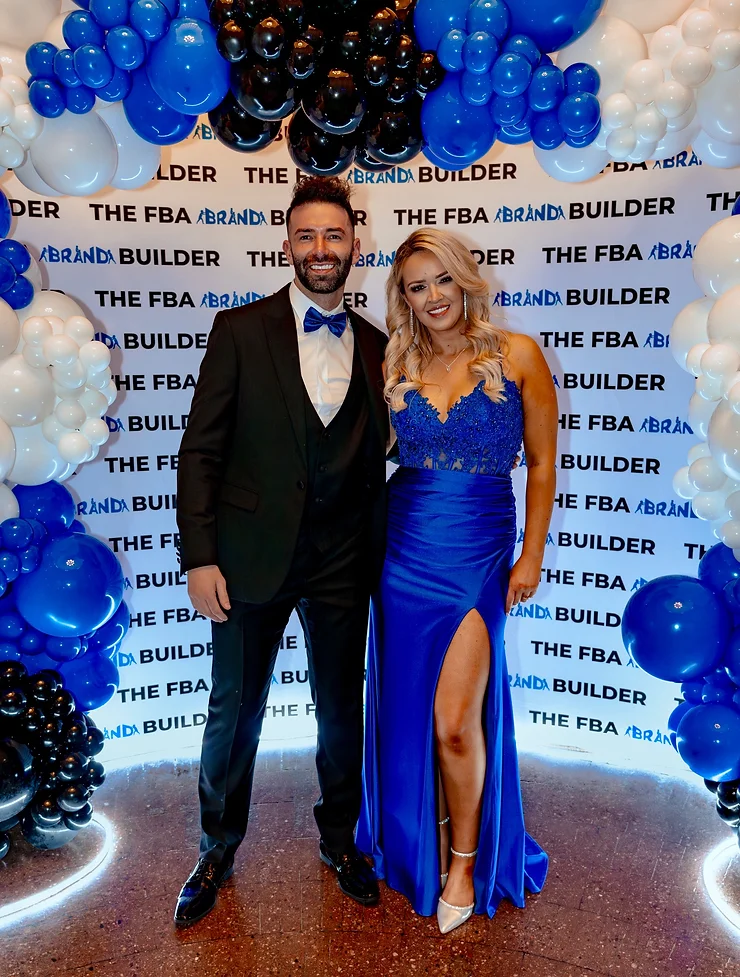Darren Campbell recently hosted the first-ever FBA Brand Builder Awards Gala at The Dunadry Hotel, where a select group of entrepreneurs were celebrated for their supposed success in building Amazon brands. The night was full of glamour, with awards given out to individuals who seemed to embody financial freedom and entrepreneurial triumph. But scratch beneath the surface, and you’ll find growing concerns about whether these brand-building success stories are as legitimate as they seem.
The Award Winners
The event honored several entrepreneurs across various categories, including:
- Ryan Stewart & Ryan Tweed – Co-founders of Fast Ambition (FBA Brand Builder of the Year)
- Josh McKee – Founder of Outtrek (Young Brand Builder of the Year)
- Jasin Magill – Founder of IzzySports (Male Brand Builder of the Year)
- Nicole Caldwell – Founder of Might Equipped (Female Brand Builder of the Year)
- Justine McMullan – Founder of MySensory (Most Resilient Brand Builder of the Year)
- Tim Mouncey & Chris Stevenson – Co-founders of Zuleus (Best Newcomer Brand of the Year)
- Ricky Faloon & JJ McAnally – Co-founders of Fired Up (Brand Partnership of the Year)
- Jordan McClean – Founder of Hydros (Highest Monthly Revenue of the Year)
While these names are celebrated by Darren, a closer look suggests their success stories may not be as substantial as they’re made out to be.
The Social Media Illusion
A big red flag among the award winners is how heavily they rely on social media to create a "success narrative." For example, Josh McKee’s Instagram features little about the actual operations of his business and instead focuses on promoting the FBA Brand Builder program itself, casting doubt on his actual business achievements.
Similarly, Ryan Tweed's Instagram lacks real-world evidence of the massive success Darren claims. These accounts seem to follow a common theme: showcasing a highly curated lifestyle of success with little concrete proof to back it up.

Questionable Sales Figures and Margins
Darren frequently touts profit margins of 30-55% and six-figure monthly incomes, but there’s little evidence to support these claims. Brands like Zuleus and Hydros show minimal social media engagement and a weak online presence. For example, Zuleus reportedly made $50,000 in sales in just 30 days, yet their website and social media platforms have little organic traffic, raising questions about the legitimacy of these sales figures.
Fired Up, co-founded by Ricky Faloon and JJ McAnally, is another featured success story that falls short of transparency. Darren claims they achieved $50,000 in sales within 32 days, but there’s no context about whether these figures represent profitability or sustainability. Social media posts, like one on Fired Up's Facebook, even show users questioning the lack of clarity around profit margins.
Amplifying Perception, Not Reality
It’s becoming clear that Darren has cultivated a network of people who amplify his narrative, using social media to create the perception of success. Many of the award winners, like Justine McMullan, who won Most Resilient Brand Builder, are part of this closed circle. Her MySensory Amazon store wasn’t even active during the time of investigation, casting more doubt on the validity of these awards.
The Realities of Amazon FBA
Darren's portrayal of Amazon FBA as a surefire path to six-figure incomes overlooks the challenges of the business. Rising fees, fierce competition, and narrow profit margins make it difficult for most sellers to achieve the kind of success Darren claims. Real-life case studies show that only a small percentage of Amazon sellers ever achieve the six-figure monthly revenues that Darren suggests are commonplace.
Check out these resources for a deeper dive into the true struggles of Amazon FBA:
Conclusion: Success or Smoke and Mirrors?
The FBA Brand Builder Gala showcased a night of apparent success, but the lack of transparency raises serious questions. Darren Campbell seems to be creating an echo chamber of success stories, but with little proof of significant profits or lasting business achievements. Brands with low social media engagement and questionable sales figures leave potential students wondering if the FBA Brand Builder program is as effective as it’s made out to be.
Events like the FBA Brand Builder Awards are designed to give Darren Campbell's program a veneer of legitimacy, using staged celebrations and carefully selected winners to create the illusion of guaranteed success. However, it's important to look beyond the surface-level glamour and flashy testimonials. Just because an award is given doesn’t mean it reflects true financial success or sustainable business growth. These events act as marketing tools, intended to entice new participants into the program by showcasing success stories that may not be fully transparent or verified. Always question the truth behind the awards and proposed results—dig deeper to understand the realities of Amazon FBA and what it truly takes to succeed.
If you’re considering joining Darren’s network, look beyond the flashy awards and luxury Instagram posts. The real challenges of Amazon FBA aren’t being discussed, and it’s crucial to weigh the reality of the business model against the dream Darren sells.

